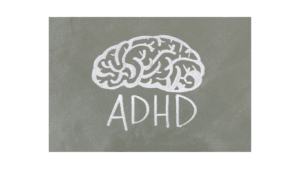Attention-Deficit/Hyperactivity Disorder (ADHD) is often associated with children, but many adults struggle with undiagnosed ADHD, affecting their work, relationships, and spiritual life. If you’ve ever wondered why it’s hard to stay focused during prayer, finish daily tasks, or feel overwhelmed with disorganization, you’re not alone. Let’s consider the helpfulness of an ADHD evaluation and treatment opportunities.
At North Pointe Services, we believe that understanding ADHD from both a clinical and faith-based perspective can bring clarity, hope, and a path forward. Seeking professional guidance isn’t a sign of weakness; rather, it is an opportunity to grow in self-awareness and strengthen your relationship with God as you develop tools to manage daily challenges.
What Is ADHD?
ADHD is a neurodevelopmental condition that affects attention, impulse control, and executive functioning. It is more than just being “scatterbrained” or easily distracted; it is a brain-based condition that impacts focus, organization, and emotional regulation.
Common symptoms of ADHD in adults include:
- Difficulty staying focused on tasks, especially repetitive or lengthy ones
- Frequent forgetfulness or losing track of time
- Struggling with organization and planning
- Impulsivity in decision-making or conversations
- Restlessness and difficulty relaxing
- Trouble following through on commitments
For many adults, undiagnosed ADHD can lead to frustration, shame, and even spiritual doubt—wondering why they can’t seem to get life “under control.” However, ADHD is not a reflection of character or faith. God has designed each of us uniquely, and understanding your struggles can help you seek His strength and wisdom in managing them.
Scriptural Reflection:
“For God is not a God of confusion but of peace.” (1 Corinthians 14:33, ESV)
When daily life feels chaotic, God offers peace. Taking steps to understand ADHD can help bring order to that chaos, allowing you to function more effectively and deepen your trust in Him.
How ADHD Evaluations Work
If you suspect you may have ADHD, an evaluation can provide the clarity needed to pursue appropriate treatment and support. ADHD evaluations typically include:
Clinical Interview
A licensed counselor or psychologist will ask about your history, symptoms, and how they impact daily life. They may explore childhood experiences, work performance, relationships, and emotional struggles.
ADHD Screening Tests
Several standardized questionnaires can assess ADHD symptoms, including:
- The Adult ADHD Self-Report Scale (ASRS)
- The Conners’ Adult ADHD Rating Scale (CAARS)
- Barkley Adult ADHD Rating Scale (BAARS)
These tests help measure attention, impulsivity, and executive functioning, providing a clearer picture of your challenges.
Input from Loved Ones
Since ADHD symptoms often appear in multiple areas of life, professionals may ask for insights from a spouse, family member, or close friend to better understand your struggles.
Rule-Out of Other Conditions
ADHD symptoms can overlap with anxiety, depression, or trauma-related disorders. A proper evaluation ensures that co-occurring conditions are considered, leading to the most effective treatment plan.
Scriptural Reflection:
“The purpose in a man’s heart is like deep water, but a man of understanding will draw it out.” (Proverbs 20:5, ESV)
Seeking an ADHD evaluation is a step toward gaining insight into how your mind works. Through professional assessment and God’s wisdom, clarity can replace confusion.
Faith-Based Approaches to ADHD Treatment
After receiving an ADHD diagnosis, you may wonder, “What’s next?” Treatment options can include both practical strategies and faith-based support to help you navigate daily challenges.
Behavioral Strategies
- Use visual reminders and schedules: Keep a planner, use phone alarms, or create a daily checklist to stay on track.
- Break tasks into smaller steps: Completing tasks in chunks can reduce overwhelm.
- Accountability partners: A trusted friend, mentor, or small group can provide encouragement and reminders.
Scriptural Encouragement:
“But all things should be done decently and in order.” (1 Corinthians 14:40, ESV)
Small adjustments to daily habits can bring order to the chaos, helping you function with greater peace and purpose.
Christian Counseling & Support
Faith-based counseling provides a safe space to:
- Address self-doubt and negative self-talk
- Work on time management and focus strategies
- Seek God’s guidance in managing daily struggles
Through professional counseling, you can learn practical tools to manage ADHD while deepening your faith and learning to extend grace to yourself.
Medication & Holistic Approaches
- Some individuals find medication helpful for focus and impulse control, but it is a personal decision.
- Holistic methods, such as exercise, nutrition, and mindfulness, can also improve ADHD symptoms.
- Prayer and meditation on God’s Word can serve as a grounding practice when distractions feel overwhelming.
Scriptural Encouragement:
“You keep him in perfect peace whose mind is stayed on you, because he trusts in you.” (Isaiah 26:3, ESV)
By focusing on God’s peace, rather than frustration, you can approach ADHD with patience and self-compassion.
Should You Seek Professional Counseling?
If ADHD symptoms are affecting your relationships, job, or faith life, professional counseling can offer tools, strategies, and faith-based guidance to help you thrive.
Consider seeking counseling if:
- You feel overwhelmed or discouraged by disorganization.
- You struggle with time management, focus, or emotional regulation.
- ADHD symptoms cause strain in relationships or work.
- You desire faith-based support to navigate ADHD challenges.
At North Pointe Services, we offer Christian counseling to help you understand, manage, and overcome ADHD struggles while keeping faith at the center of your journey.
You are not broken—you are wonderfully made in God’s image. Seeking help is a step toward growth, peace, and alignment with His plan for your life.
Ready to take the next step? Contact us today to schedule an ADHD evaluation and begin your journey toward clarity and healing.
Final Thoughts: ADHD, Faith, and Hope
ADHD can be challenging, but it does not define your capabilities or your faith. By combining faith-based principles with evidence-based strategies, you can live a fulfilling life, strengthen your focus, and grow spiritually.
“I can do all things through him who strengthens me.” (Philippians 4:13, ESV)
You are not alone in this journey. With the right support, a structured approach, and God’s grace, you can thrive.
Would you like to take the first step toward understanding your mind and strengthening your faith? Click here to Get Started with an ADHD evaluation today.

About the Author
Janice Cox, LPC, is a dedicated therapist with 12 years of experience working with children, adults, couples, and families. Holding a Bachelor’s degree in Biblical Studies and a Master’s degree in Professional Counseling, Janice integrates evidence-based counseling techniques with Christian faith to provide compassionate, faith-centered mental health care.








